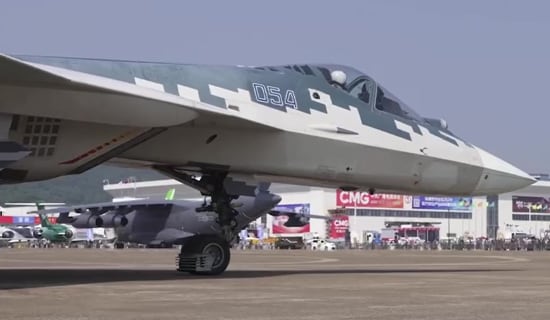The following are selections from the MEMRI Daily Brief series and the MEMRI Inquiry and Analysis series from 2021, by various MEMRI researchers and focused on a variety of topics.
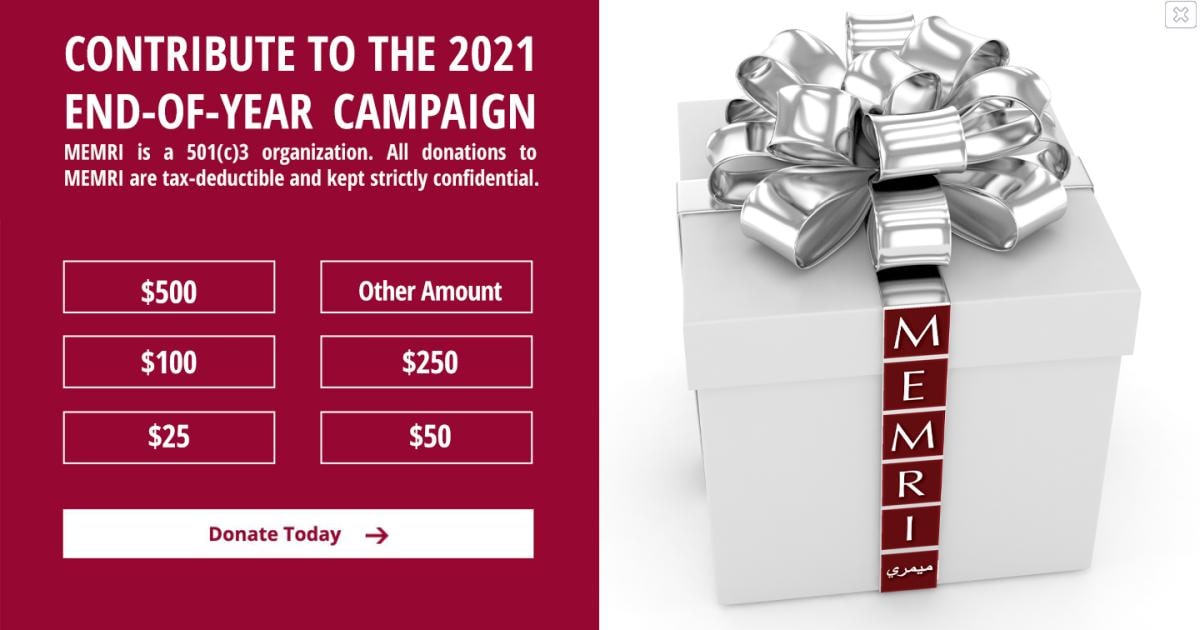
Everything Converges: Adding Chinese To MEMRI's Priority Languages
By: Yigal Carmon and Alberto M. Fernandez*

Antiquarians digging in various ancient and fabled Middle East cities – Nishapur, Ctesiphon, Samarra, Homs, Raqqa – have found ancient Chinese ceramics laboriously brought along the Silk Road to their destinations. The Silk Route across Asia, from China to Europe, is over two thousand years old, and along it traveled goods and ideas, in both directions: silk from China, Buddhism and Nestorian Christianity, Roman silver, Bactrian horses from the West to the East. China traded with Rome and Byzantium and with the empires of Islam. China's weakness in the Early Modern Era and the rise of European mercantile empires (15th to 19th century) eclipsed this ancient trade route. But now it has returned with a vengeance.
By: Yigal Carmon*

In January 2011, the peoples of the Middle East began their march towards seizing a share in the leadership and resources of their countries, following centuries in which they were deprived of this share by various ruling oligarchies. This uprising, which broke out in Tunisia, spread to Egypt. However, just like the European peoples' struggle for a share in power, this campaign against the total hegemony of the ruling elite is bound to be a drawn out, multi-phased historical process, with numerous setbacks and crises. This first round – the present uprising in Egypt – will not be without some achievements, but it is ultimately doomed to failure, in that the Egyptian military establishment will retain its grip over power and resources in the country.
If Only, On Saturday, The Sudanese Generals Fall
By: Alberto M. Fernandez*

Would that it were so easy – that less than a week after it was launched, the military takeover in Sudan would be reversed. On Saturday, October 30, Sudanese will come in their hundreds of thousands to protest against the naked power grab by Sudan's generals, led by Abdul Fatah Al-Burhan, which saw them overthrow the country's civilian government on October 25.
By: Steven Stalinsky and R. Sosnow*

This MEMRI report on neo-Nazi, white supremacist, and Holocaust denial content on the Internet Archive, authored by Steven Stalinsky and R. Sosnow, is of major importance in the fight against hate speech generally, racism, and extreme rightist white supremacy propaganda, and especially its central antisemitic component. Based on a tremendous and detailed examination and presentation of original source materials, it counters the usual reaction to such materials that deems them to be a marginal phenomenon in democratic or partially democratic societies. Most of the material is of U.S. provenance, though there is also some originating in Europe. The great advantage of this report is that it not only describes the antisemitic and racist propaganda, but presents its actual texts and images, thus obviating the need to prove that such propaganda actually exists. The Internet Archive, which is universally available, is circumventing all the efforts, in themselves laudable ones, to limit hate speech disseminated via social media. Antisemites and racists can and do easily refer to the Archive for their propaganda purposes, and there appear to be no legal restrictions on such efforts.
By: A. Savyon*
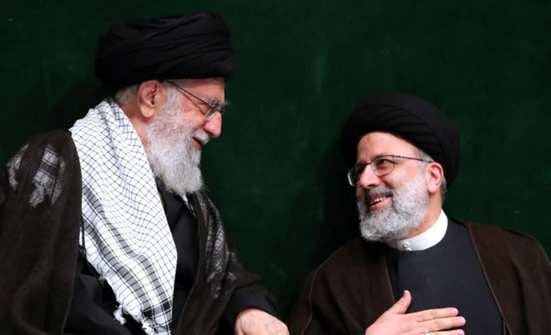
As the West demands an immediate Iranian return to the nuclear talks in Vienna, with the aim of bringing Iran back into compliance with the restrictions on uranium enrichment set out in the JCPOA nuclear deal, it is increasingly thought that while Iran under President Ebrahim Raisi will resume negotiations, it will also be hardening its positions. According to August 2021 reports by the International Atomic Energy Agency (IAEA), Iran is continuing to enrich uranium to 60% using advanced-generation centrifuges (IR-4 and IR-6). This constitutes a double violation of the JCPOA, which restricts Iranian enrichment to 3.67%, and to using early-generation centrifuges. In the reports, the IAEA noted that 60% enrichment brings Iran closer to the 90% enrichment needed for nuclear weapons, and that Iran has made advances in producing the uranium metal used in nuclear weapons manufacture; so far it has produced 200 grams of it.
The Taliban Victory – Made In USA
By: Tufail Ahmad and Yigal Carmon*

The fall of the democratically elected government in Afghanistan is an American betrayal of democracy. The fall did not begin yesterday – it began with the Doha agreement signed in February 2020. The U.S. and other Western powers were pretending hard to push forward a non-option in Kabul, a power-sharing agreement between the Taliban and the democratically elected government of President Ashraf Ghani. This option never existed. The United States itself dumped this option in Doha, Qatar, when it made the Doha agreement with the Islamic Emirate of Afghanistan (the Afghan Taliban organization), banishing the democratically elected government totally from the talks. The United States killed this option the moment it authored in the agreement the release of 5,000 Taliban jihadi terrorists, bowing to this Taliban demand.
By: S. A. Ali*

The U.S. decision to withdraw from Afghanistan by September 2021 is provoking a victorious narrative among Salafi-jihadi clerics and some Shi'ite militants in Iraq as both groups exploit the withdrawal not only to motivate fighters to never abandon jihad or, in the case of the Shi'ite militias, to continue targeting the U.S. interests in the region, but also to discredit rival groups. On one hand, Salafi-jihadi clerics are perceiving the Afghan Taliban's surge in Afghanistan as a victory for its ideological parent: Al-Qaeda. On Telegram, while supporters of jihadi groups eagerly shared videos showing Taliban fighters taking control of borders crossings and advancing on cities, jihadi clerics were actively messaging on Taliban's "steadfastness" that ultimately led to a "victory" over a superpower. Coupled with praise for the "glories of jihad," posts argued that the Afghan model is the one to follow in order to impose sharia. Others criticized regional players and those perceived as opponents of jihad, such as Turkey.
The Kremlin May Have Inadvertently Crowned Navalny As The Undisputed Leader Of The Opposition
By: Amiel Ungar and Anatoly Strandberg*

Alexey Navalny, the opposition leader and anti-corruption fighter returned to Russia on January 17, 2021 from Germany, where he had recovered from the near fatal attempt to poison him. He was immediately arrested at Moscow's Sheremetyevo airport to which his plane had been diverted in order to discourage press coverage of his return and arrest. His arraignment took place in a police station rather than in a regular court and there were other irregularities in the proceedings. Navalny and his supporters had two counterstrokes. Navalny's anti-corruption foundation posted on YouTube an expose of Putin's billion-dollar Black Sea palace complete with an $800 toilet brush and a $1250 toilet paper holder. They also staged nationwide protest demonstrations on January 23, 2021.
By: N. Mozes*

In recent years, the manufacturing, trade and use of drugs in war-torn Syria, whether in areas controlled by anti-state armed groups or those under the Syrian regime's control, has surged to a new level and it seems that Syria has turned into a point of departure for enormous drug shipments, especially Captagon. Some of these shipments have been seized at ports in the Mediterranean Basin including Cyprus, Malta, Egypt and the Gulf countries. The most conspicuous example was a billion-dollar Captagon shipment that was confiscated in Italy in June 2020.
By: Z. Harel*

In November 2020, Qatari Emir Sheikh Tamim bin Hamad Aal Thani decreed that the country's first elections for its parliament, the Shura Council, would be held in October 2021. These elections had been postponed repeatedly since 2004, when a constitution was approved by referendum. The constitution states that the people would choose two-thirds of the 45-member Shura Council – that is, 30 of them – and the rest would be appointed by the emir. On July 29, 2021, the emir published an electoral law that stated that only third-generation Qataris who are citizens will be able to vote and to run for parliament. These citizens are defined as aged 18 and over and having a grandfather born in Qatar. According to the law, they may vote in districts in which their tribe or family reside, and each of 30 electoral districts will choose one representative. Candidates for office must be "of Qatari origin" and least 30.
The Gulf Reconciliation: A Resounding Qatari Victory, Or A Temporary Truce In The Gulf?
By: Y. Yehoshua*

The summit of the Gulf Cooperation Council (GCC), held on January 5, 2021 in the Saudi city of Al-Ula, announced a reconciliation among the Gulf countries and the start of a new era in the region. Saudi Arabia, the UAE, Bahrain and Egypt, known as the Arab Quartet, ended their economic and diplomatic boycott of Qatar that lasted more than three years. Led by Saudi Crown Prince Muhammad bin Salman, the move to lift the boycott was mediated by Kuwait and followed heavy pressure from the outgoing Trump administration, especially from Trump's son-in-law Jared Kushner. To date, the understandings that led to the Gulf reconciliation have not been disclosed.
By: H. Varulkar*

On May 15, 2021, at the peak of the Hamas-Israel fighting and as Qatar was engaged in efforts by the U.S., Egypt, and other countries to mediate between the parties and reach a ceasefire, Qatar hosted, in its capital Doha, a mass rally in solidarity with the Palestinians. The rally, which was a display of support for the Gazan terror groups, especially Hamas, included calls in praise of martyrdom, jihad, and the armed struggle against Israel. The rally was organized by the International Union of Muslim Scholars (IUMS), which was established in 2004 by Sheikh Yousuf Al-Qaradawi and has for years has been sponsored and funded by Qatar even though it consistently promotes incitement, calls for jihad, and antisemitism. In fact, a few days before the conflict in Gaza began, the IUMS published a proposed Friday sermon calling for jihad and martyrdom for the sake of Al-Aqsa.
New Decrees By Palestinian Authority President 'Abbas Restrict Civil Society
By: S. Schneidmann and H. Varulkar*

Two presidential decrees recently issued by Palestinian Authority (PA) President Mahmoud 'Abbas aroused intense criticism in the PA. The first, issued on March 2, 2021, imposes severe restrictions on the activity and finances of Palestinian civil society organizations. The second, issued three days later, on March 5, suspends internal elections in all Palestinian professional unions for six months. The civil society organizations fumed over the decrees, which they said were aimed at restricting their independence and preventing them from performing their duty of overseeing the government's performance. They called them anti-democratic decisions that contravene the Palestinian Basic Law as well as international conventions, and demanded that they be revoked.
By: O. Peri and Y. Yehoshua*

Syria's presidential elections, held every seven years, will take place on May 26, 2021. The upcoming elections are based on the constitution passed by the Syrian regime in 2012, which is the first Syrian constitution to allow presidential elections with multiple candidates. Two candidates are running against the incumbent president Bashar Al-Assad. One is 'Abdullah Salloum 'Abdullah, a former minister, member of the Socialist Unionist Party, which holds only two seats in the present parliament. This party is a constituent of the Progressive National Front, a parliamentary bloc led by the ruling Ba'th Party, which has announced its support for Assad in the present elections. The other candidate is Mahmoud Ahmed Merei, member of the Syrian Democratic Front, which operates as a regime-approved opposition group. The participation of Assad's two rivals is widely seen, both inside and outside Syria, as a farce and a mere show of democracy, since their chances of winning are miniscule.
By: B. Chernitsky*

With President Joe Biden's election, the Gulf states - especially in Saudi Arabia, the UAE and Bahrain - are concerned that this administration will revive the Obama administration's lenient policy towards Iran and its proxies in the region, and will reinstate the 2015 nuclear deal with Iran, from which Biden's predecessor, Donald Trump, withdrew. From the Gulf states' perspective, the main problem with this deal is that it ignored the issues of Iran's ballistic missiles and its interference in the countries of the region. They fear that the Biden administration will reinstate the deal without expanding it to include these issues, despite declarations by Biden and by State Secretary Antony Blinken that these issues will be addressed. Furthermore, in the recent weeks the Gulf states have demanded to be included in the nuclear talks with Iran, should they be renewed. According to reports, Qatar is mediating between the U.S. and Iran, perhaps with the silent consent of Saudi Arabia, which recently ended the boycott of Qatar. Voices in the Gulf media are also urging the U.S. not to lift the sanctions imposed by the Trump administration on Iran unless it changes its policy in the region.
Read The Full Report
By: S. Schneidmann*

In the last few days, economic and social protests against the Hamas authorities in Gaza have erupted again, led by the "We Want to Live" movement and online campaign. The campaign was first launched in March 2019 to protest the high cost of living and the unemployment in Gaza, and included mass demonstrations that were brutally suppressed by Hamas' security apparatuses. So far, the renewed campaign is largely confined to social media, but some activists warn it may soon escalate into street protests against Hamas, like the ones in 2019.
By Y. Yehoshua and S. Schneidmann*

Although the Hamas security apparatuses keep a tight lid on protests against the Gaza authorities, including by arresting citizens who voice criticism on social media, these media continue to serve as a platform for criticism by Gazans against Hamas. Two catastrophes that occurred in Gaza markets in the last 18 months evoked especially intense criticism from Gazans on social media, who drew a connection between them and blamed them on the terror organizations in Gaza and in particular on Hamas. One was the July 22, 2021 explosion of a munitions warehouse belonging to the Palestinian Islamic Jihad (PIJ) in Al-Zawiya market, which killed one person and wounded 10. The other incident is a massive fire that broke out in the Al-Nusairat refugee camp in March 2020, which killed 25 people and which, according to reports on social media, was caused by Hamas activists throwing a firebomb at a bakery that refused to pay them protection.
By: A. Agron*

In recent years the idea of a religiously, ethnically, or racially homogenous territory has become a common ideological staple of extremist groups across the political spectrum. Both Islamist and far-right groups have developed similar territorial imperatives that call for the formation of states that explicitly reject diversity and embrace homogeneity. Since its inception, the so-called 'Islamic State' has invited Muslims from around the world to emigrate to the 'Middle Eastern Islamic Territory', where residents would live under a puritanical version of Shariah law. Before and shortly after its June 2014 establishment, many Western jihadis excitedly shared their plans to migrate or make hijrah to these lands. Some of them uploaded photographs and detailed the routes they traveled in order to assist others wishing to follow in their footsteps. The propaganda that these jihadis disseminated also often included complaints about the "infidel" lands from which they came, where they were allegedly unable to practice Islam the way they thought fit. Those who travelled also commonly boasted about the living conditions and newfound freedoms of their adopted homeland.
In the last few years, Hay'at Tahrir Al-Sham (HTS), the Sunni jihadi group which has controlled the province of Idlib, Syria since 2017, has promoted itself to the world as the moderate face of Islamist militancy in opposition stronghold Idlib and as a group which supports freedom of the press and encourages rebel journalists to report the truth and support the revolution. In recent months, HTS leader Abu Muhammad Al-Julani, who has been designated as a global terrorist since May 2013, appeared on foreign media outlets to highlight the group's position on restricting jihad to the Syrian regime and to refute accusations that HTS violates human rights, for example, by arbitrarily arresting scores of residents and reporters in areas under its control in the Idlib, Hama, and Aleppo governorates.
By: Romany Shaker*

As the withdrawal of U.S. and coalition troops from Afghanistan is already in its final stages as per the February 29, 2020 agreement between the United States and the Afghan Taliban, signed in the Qatari capital of Doha, the Islamic State (ISIS) has begun to carry out increasingly diverse attacks via its Afghan affiliate, the Islamic State Khurasan Province (ISKP), in an attempt to expand its influence in the country. The surge in ISKP's attacks on various critical targets, including infrastructure and ethnic and religious minorities, is an attempt to compete with the Islamic Emirate of Afghanistan, known as the Afghan Taliban, as both jihadi groups seek to immediately exploit the U.S. withdrawal from Afghanistan. Acting quickly after being emboldened by the U.S. withdrawal, the Taliban began consolidating its grip on power, making rapid advances by controlling key border crossings in the north and west and a growing number of districts across the country.
By: Amiel Ungar and Anatoly Strandberg*

Russia has been concentrating forces in the Voronezh area 150 miles from the Ukrainian border. Reports surfaced in Russia of a shortage of rail transport for agricultural vehicles, because the military had booked the rail carriers for its purposes. The West feared that the troop concentrations, ostensibly for snap inspections represented a reprise of the strategy employed in the seizure and annexation of Crimea in 2014 when military exercises served as a pretext for concentration forces. A series of Western statements expressing backing for Ukraine followed in an attempt to head off such a scenario. Ukrainian President Volodymyr Zelensky received calls of support from US President Joe Biden, British Prime Minister Boris Johnson, NATO Secretary General Jens Stoltenberg. French President Emmanuel Macron and German Chancellor Angela Merkel weighed in in a video call with Vladimir Putin; the chairman of the Joint Chiefs of Staff, Gen. Mark A. Milley, called his Russian counterpart General Gerasimov.. Pentagon Spokesperson John Kirby called upon Russia to respect Ukraine's territorial integrity and sovereignty. refrain from provoking or increasing tensions and " tell the world what they're doing, and with what forces, and what capabilities, and what their intentions are."
The 2015 Iran Nuclear Deal Revisited
By: Ze'ev B. Begin, A. Savyon and Yigal Carmon*

It was a great day and history could be seen in the making. The U.S., the U.K., France, Germany, the European Union, China, and Russia had finally reached an agreement with the Islamic Republic of Iran on blocking its plans to obtain nuclear weapons. As declared by President Obama in the White House on July 14, 2015, the agreement, known as the Joint Comprehensive Plan of Action (JCPOA), had been "negotiated from a position of principle and strength, and the result is a nuclear deal that cuts off every pathway to a nuclear weapon." Six years earlier, speaking in April 2009 in Prague, the newly elected U.S. President laid the ground work for the agreement, announcing that his administration would "seek engagement with Iran based on mutual interests and mutual respect. We believe in dialogue... We want Iran to take its rightful place in the community of nations, politically and economically. We will support Iran's right to peaceful nuclear energy with rigorous inspections." And so, as a shining victory of diplomacy, July 14, 2015 was a day to remember.
By: Dr. Nimrod Raphaeli*
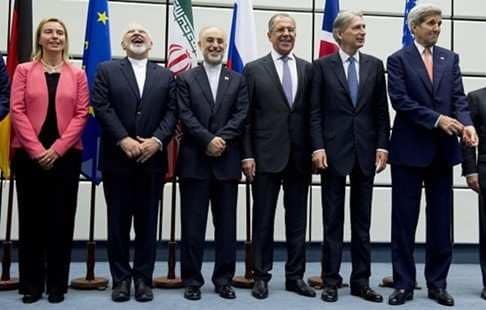
Between June 1-2, 1941, there occurred the most dramatic and gruesome event in the modern history of Iraqi Jews – the Farhud. During two days of political interregnum, after the coup of the pro-Nazi Iraqi prime minister Rashid Ali Al-Kailani had failed and the monarchy had been restored with the help of the British army, a violent mob attacked Jewish residents of Baghdad and plundered their businesses. Order was restored on the night of June 2, but the mob, which included soldiers and members of the police force, had left behind a shattered community. At least 180 Jews had been murdered and close to 2,000 wounded; women had been raped, and many Jewish businesses had been looted or destroyed. The Farhud was a turning point in the history of the Iraqi Jews: Previously, Jews may have thought that the future of the community was precarious; now many wondered whether the Iraqi Jewish community had a future at all.
Qatar: The 'Stealth' Pro-Islamist Subverter
By: A. Smith*

In the inner sancta of their palaces, the Qatari royal family may soon celebrate the successful overthrow of the democratically elected government of Afghanistan by the Taliban, whom the Qatari royal family have supported for many years. Qatar has played this stealth role while masquerading over the past two years as a mediator between the democratically elected government of Afghanistan and the Taliban which, thanks to Qatari support, has always had money enough to pay the Taliban fighters better than the U.S.-supported Afghan National Defense and Security Forces (ANDSF). A 2009 cable signed by then Secretary of State Hilary Clinton read: "Qatar's overall level of [counter-terrorism] cooperation with the U.S. is considered the worst in the region."
By: Chris King*

Mao Zedong's cult of personality had the benefit of maintaining and consolidating his own power and establishing absolute authority to subdue his political opponents. The main feature of his personality cult was to arouse the masses to fight against his political opponents in the Chinese Communist Party (CCP). Nevertheless, a considerable number of people from among the masses and the party sincerely and fanatically worshipped Mao because his enormous personal stature and his political record and capital made the building up of a personality cult relatively easy.
By: Chris King*

Xi Jinping is engaged in a personality cult. He has now lifted his own term limit as head of state, and revised the Party's history to give fundamentally positive credit to the Cultural Revolution and Mao Zedong – a significant change in direction that is clear and worth watching closely. But I don't think he can reach the level of Mao's cult of personality. The main reason for this is not that the people have been enlightened, but that Xi Jinping lacks authority. At the same time, he also wants to take advantage of Deng Xiaoping's legacy, which is that China's rapid economic development has been achieved through capitalism. At least in the short term, I don't think he will fully implement the nationalization of enterprises and the public ownership economy, because the private sector is efficient, fast-changing, adaptable, and dynamic.
Russia-Turkey Arms Bargain: S-400 In Exchange For UAV Technologies
By: Dr. Pavel Luzin*

In 2017, Russia signed a USD $2.5 billion contract with Turkey under which it would supply the latter with S-400 air and missile defense systems – two S-400 regiments, each comprising two battalions, with each battalion comprising eight launchers with four missile tubes apiece. That same year, in Ankara, the two countries also signed a loan agreement stipulating that Turkey would pay 45 percent of the cost of the S-400s up front and Moscow would lend Turkey the funds for the remaining 55 percent. The Russian loan was in Russian rubles, saving Turkey up to 3 percent of the total debt.
By: M. Manzour and A. Savyon*

Since its establishment in 1979, Iran's revolutionary regime has set the goal of the elimination of the State of Israel at the focus of its ideology, declaring it openly and emphatically, in addition to years of massive and consistent military efforts. These military efforts have been declared openly by Iranian and Palestinian spokesmen, and take the form of Iranian funding, training, and provision of military equipment and rockets to both Hamas and Palestinian Islamic Jihad; on occasion, Iran has had these organizations operate according to its own needs. The Iranian regime also provides backing and encouragement for intifada operations, that is, popular and armed Palestinian uprisings originating from the West Bank and Gaza. See, for example, the gratitude expressed by Hamas political bureau head Ismail Haniya to Iran on May 21, 2021 for its assistance to Hamas in the form of weapons, funds, and technical support (to view, click here or below).
Beijing's Overseas Military Base In Djibouti
By: Tuvia Gering and Heath Sloane*

Djibouti, in the Horn of Africa, has become a geostrategic point for China. With a population of under one million, it is situated in a geopolitical hotspot, at the end of a chokepoint between the Red Sea and the Gulf of Aden through which one-third of the world's ships must pass to transport energy and cargo. A former French colony, Djibouti hosts Camp Lemonnier, a United States Naval Expeditionary Base that is the most extensive permanent U.S. military base in Africa, in addition to the French naval base of Djibouti that is also known as the Naval base of Héron; the Japan Self-Defense Force Base Djibouti; Amedeo Guillet, an Italian military support base; and the Chinese People's Liberation Army Support Base, which has been operated by the People's Liberation Army Navy (PLAN) since its opening.
Opioid Painkiller Tramadol Abuse By Boko Haram And Islamic State West Africa Province (ISWAP)
By: Ali Karami*

Wherever there is supply, there is a corresponding demand driving the supply. In Nigeria, tramadol, an opioid painkiller, has been used for years by Boko Haram and the Islamic State West Africa Province (ISWAP) to embolden its militants during fighting. As explained in an Al-Jazeera report, tramadol "binds to opioid receptors in the brain and spinal cord, leading to a sense of euphoria." Users say that it relieves pain and hunger pangs, calms anxiety, increases strength, and boosts confidence. Since 2018, the drug has been prescription-only in Nigeria. Despite government efforts to restrict its use, traffickers have been caught smuggling it into the country. Drug traffickers and smugglers are also managing to bribe their way into the country in a bid to distribute it to their addicted clients.
By: Y. Graff*

Since the election of Joe Biden as U.S. President, and even prior to it, the Egyptian regime has been concerned about the possible resumption of the policy of the previous Democratic administration, headed by Barack Obama. The Obama administration was accused by the Al-Sisi regime of "turning its back" on Egypt by opposing the 2013 ouster of the Muslim Brotherhood rule; moreover, it had directed harsh criticism at the Al-Sisi regime for its human rights record. The concerns of the Egyptian regime increased lately, following the publication, on February 26, 2021, of a U.S. intelligence report that held Saudi officials, chief of them Crown Prince Muhammad bin Salman, responsible for the murder of Saudi journalist Jamal Khashoggi and which led to the sanctioning of some of these officials. The Egyptian regime fears that this report is indicative of the Biden's administration's future policy on human rights, including in the case of Egypt. These fears are exacerbated further by the ongoing pressure on Egypt from human rights organizations to stop suppressing freedoms in the country, and by the mounting criticism of the UN and EU.
By: Dr. Vladislav L. Inozemtsev*
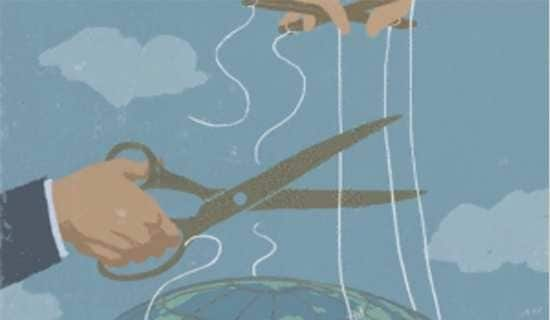
On October 21, 2021, addressing the annual session of the Valdai Discussion Club in Sochi, Russian President Vladimir Putin reiterated his old leitmotif saying, that "the international order is structured around nation states and only sovereign states can effectively respond to the challenges of the times and the demands of the citizens." There was nothing new in his words, as everyone knows that for decades he has been praising "the state" as the most valuable creation of the human spirit. Since his time in power, Putin acts as the only representative of the state, and behaving as the "owner" of Russia.
The Fall Of Hong Kong: China's Strategic Plan To Conquer Hong Kong And Purge It Of Its People
By: Ching Cheong*

The Chinese Communist Party is implementing a strategic plan to destroy Hong Kong through a psychological warfare campaign against the population, training of new cadres to run the city, and a mass exodus of as many millions of Hong Kongers as possible who oppose Beijing's central rule. Veteran journalist Ching Cheong describes three initial "countermeasures" to a democratic Hong Kong that Beijing implemented in 2003, and another 10 "countermeasures" issued in 2012 to purge and absorb Hong Kong over time.
By: Prof. Vera Schwarcz*
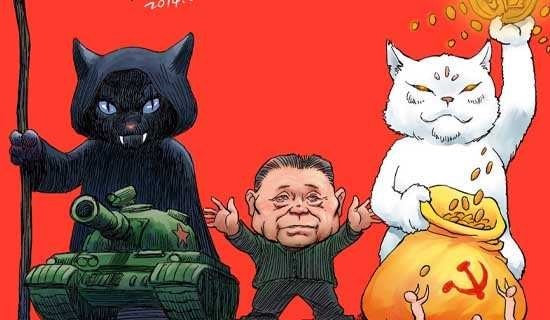
Will there be a mass uprising for democracy again in Tiananmen Square this year? Probably not. This is because Chinese President Xi Jinping has learned key lessons from his predecessors, Mao Zedong (1893-1976) and Deng Xiaoping (1904-1997). Both Mao and Deng had dared to open periods of free thought during their time in power. Both were surprised by the depths of discontent with the Chinese Communist Party (CCP) as expressed in "Big Character Posters [大字报 da zi bao]."

By: M. Reiter and Yigal Carmon*
The Islamic Republic of Iran takes great pride in its January 8, 2020 ballistic missile attack, dubbed "Operation Martyr Soleimani," against the U.S.'s Ayn Al-Asad airbase in Iraq. The attack, in which 11 missiles struck the base, was carried out in retaliation for the January 3, 2020 drone strike that killed Qassem Soleimani, commander of Iran's Islamic Revolutionary Guard Corps (IRGC) Qods Force and Iran's most influential military leader.
Antisemitism In Sermons In U.S. Mosques
By: Dr. Mohammed Al-Azdee*
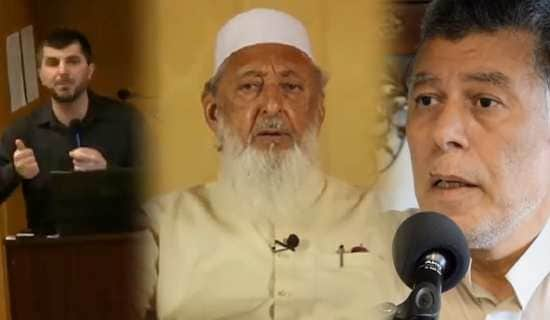
In Islam, imams serve not only as prayer and faith leaders, but as pillars of the Muslim community. They have the ability to inspire their community members and to shape their religious outlook. Thus, speeches and statements made by American imams may provide valuable insight into what they preach to the members of their communities. To explore the views preached by imams in the United States, I used the rich archives of the Middle East Media Research Institute (MEMRI) – which contain over 300 sermons and speeches made by imams and Islamic figures in the West – to collect a sample of statements made by Islamic scholars and imams in America. As it turns out, these imams' statements make it evident that antisemitism – often in the form of anti-Zionism or anti-Israel sentiment – is very present in some of America's mosques, and this might reflect a worrying reality about the presence of antisemitism in some of America's Muslim communities.
The Dangers Of Miscalculation In The Taiwan Strait – Three Sides To The Same Coin
By: Heino Klinck*
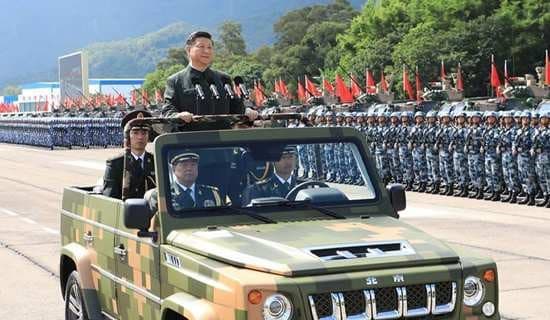
Is today the day? Tomorrow? After the Beijing Winter Olympics? Or after the 20th Party Congress in October 2022? Perhaps, the timeline is extended to 2049, the centennial anniversary of the Chinese Communist Party's ascent to power in Beijing. More and more, the region and the world speculate when the Chinese military incursions into and around Taiwan air, sea, and cyber domains will transition from the gray zone to the black and white of kinetic offensive strikes.
The Study Of History Is A Key Element Of The Kremlin's Official Ideology
By: Dr. Olesya Zakharova*

During his years in power, Russian President Vladimir Putin has long shown a vivid interest in history and history education. In particular, his concern about "the falsification of historical truth" resulted in the July 30, 2021 creation of the Interdepartmental Commission on History Education, a special body whose purpose is "ensuring a systematic and proactive approach to the issue of upholding the national interests of the Russian Federation in connection with the preservation of historical memory and the development of educational activity in the field of history." The commission's goal is shape an actual national history policy by developing a "unified approach to historical education" in the country. Vladimir Medinsky, the controversial former Russian culture minister and presidential aide, was appointed commission chairman.
Remembering 9/11 – Time For The U.S. To Play The Whole Field
By: Tom Cosentino*

When the United States had a reliable and predictable peer enemy during the Cold War, we played the game of deterrence on a global scale and we were able to cover our flanks with surrogates, intelligence, and surveillance. In the aftermath of catastrophic success, the defeat of Saddam Hussein, and the fall of the Soviet Union, we started a process of myopic focus on one type of threat at a time. Initially it was a shift to preparing for two medium contingencies against rogue states like Iraq and North Korea with a concurrent drawdown of defense and intelligence capabilities to yield a piece dividend. After the attack on 9/11 it turned to a national focus on the "War on Terror." Now in the aftermath of our retreat from Afghanistan in the wake of 20 years of war, we are again shifting to a Chinese competitor that we have effectively ignored until recently, and whom we have let shift the global and regional power dynamic without us really understanding what was happening.
A Gradual Auctioning Of Africa To China
By: Nathaniel Luz*
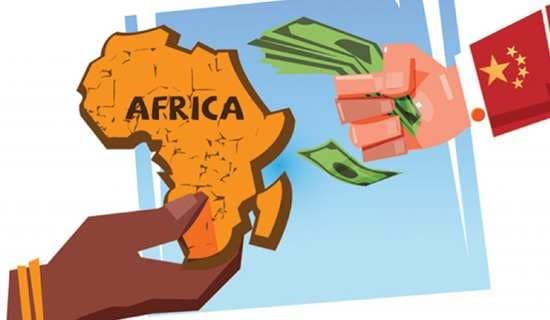
As what can be referred to as "the rush for African markets" unfolds, we must remember that Africa's historical subjection to foreign political dominance and economic subservience is a consequence of our leaders' indiscretion and shortsightedness in trading Africa away on the altar of so-called foreign aid and bilateral relations. It is saddening that this has been a prevalent narrative in most African nations, even as we begin to experience what can be called the "Chinese Power Play" in Africa. Africa must learn that this "carrot and stick diplomacy" employed by foreign aid donors will only make us weaker and susceptible to abuse and misuse in the hands of her "savior nations." There is no better way to become stronger than to maintain the discipline of self-reliance and limited aid seeking.





